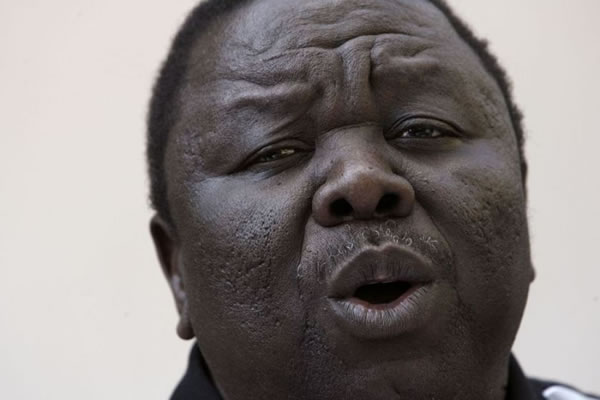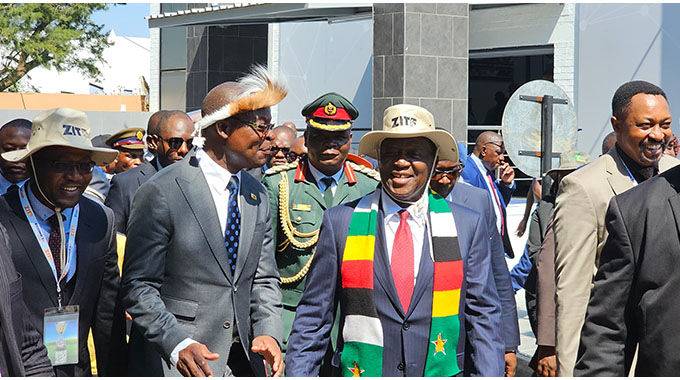Chinamasa calls for transparency in mining sector

From Oliver Kazunga in Victoria Falls
FINANCE and Economic Development Minister Cde Patrick Chinamasa has called for transparency in the mining industry as he accused most players in the sector of resisting to disclose details about their operations to government.The minister said “shady” operations in the sector were crippling progress in the crafting of a new mining fiscal regime that seeks to enhance efficient revenue collection.
Speaking at the 76th Chamber of Mines annual general meeting in Victoria Falls yesterday, Cde Chinamasa said lack of transparency and non-submission of data by mining houses was delaying the promulgation of new regulations.
“Let there be transparency. I know you shout about wanting transparency in government. We’re also asking you to be transparent. We want data (on production figures) that data should be available to the Ministry of Mines and Mining Development,” said Cde Chinamsa.
“When I asked for that data they (Ministry of Mines), were unable to produce that data. That has delayed the finalisation of the new fiscal mining regime.”
The government announced the plan to resuscitate the Zimbabwe Mining Revenue Transparency (ZMRT) last year as a way of improving accountability and transparency in the mining sector.
ZMRT initiative was launched in 2011 and a comprehensive analysis of the mining fiscal regime was undertaken in 2013 with a view to taking a deeper appreciation of the tax issues in the mining sector.
The uncoordinated collection of mining revenue by various government departments and local authorities has compromised viability.
This has presented accountability and transparency challenges hence the call for a review of the current fiscal mining regime.
The new mining fiscal regime, said Cde Chinamasa, would enhance a balance between revenue generation and the need to attract investment into the mining sector.
“I’ll not be able to pre-empt the technical details underpinning the regime given that it’s still work in progress. As most of you may be aware, we’re working with the Royal Norwegian Embassy and the World Bank to develop the framework (new mining fiscal regime).
“With the assistance of the Norwegians and the World Bank, a lot of work has so far been done. Two mining fiscal models, which assess the economic impact of various policy decisions, were developed in 2014,” he said.
Cde Chinamasa said the current tax system was associated with inefficiencies, distortions and administrative challenges and multiplicity of taxes by government agencies.
At present, Zimbabwe’s mining firms are subject to taxes and levies such as mineral royalties, corporate income tax, value added tax, customs duty, capital gains, withholding taxes on technical fees, remittances, royalties, dividends, and interest earned on deposits.
“The current mining fiscal regime provides for generous tax concessions that are intended to attract investment, given that mining is highly capital intensive.
“However, we’ve noted inefficiencies, distortions and administrative challenges that the new regime seeks to address. There’re many government agencies that are levying charges on the mining sector. For instance, local authorities, Zimra, EMA, Ministry of Mines and Mining Development and RDCs. The uncoordinated collections negatively affect the sector’s viability, transparency and accountability throughout the mining value chain,” he said.
“I’m not sure whether the industry has been transparent, and it would seem there’s a high level of information asymmetry between the industry and the government.”
Cde Chinamasa said the government had noted situations where an enterprise employs more debt than equity to finance its operations, a practice that he said had negative implications for tax obligations as high-geared institutions enjoyed tax relief on interest charges.
This, he said, was employed to avoid paying tax in the host country.
He warned the local mining sector to shun illicit financial flows that have taken centre stage at regional and global discussions saying such unethical practice posed serious repercussions to the perpetrators if caught by the government.
“With respect to transfer pricing, if it’s taking place please stop it as we go forward this will have very serious consequences if we catch you red-handed,” the minister said.
The Chamber of Mines conference — held under the theme — “Shared Vision, Shared Values, Shared Benefits” ended yesterday.










Comments